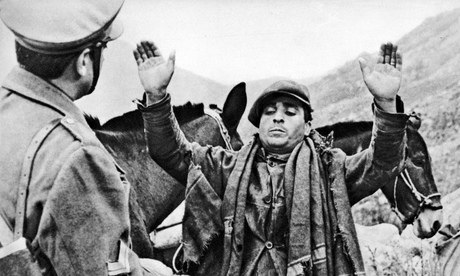
Francesco Rosi’s Salvatore Giuliano, about the real-life Sicilian bandit and separatist gunned down in 1950, does not render its meaning easily. Revived in cinemas after 52 years, it feels like a neorealist masterpiece about an occult secular martyrdom, whose lead character is only seen as a dead body in some kind of pietà. It is a conspiracy movie and a kind of visionary documentary, using real street scenes, something to be compared perhaps with The Battle of Algiers, or maybe The Gospel According to St Matthew. The film starts with the discovery of Giuliano’s corpse in the baking midday sun. A crowd of onlookers and reporters already start to question where the blood from his bulletholes has gone. Has the body been moved? From here, we flash back and forth from the beginning of the wartime Sicilian independence movement and the recruitment of bandit foot soldiers in the hills, to the eventual trial of Giuliano’s associate Gaspare Pisciotta, accused of massacring a gathering of communists, possibly in league with Giuliano. The movie suggests the bandits were in league with the carabinier, and Sicily’s authorities found it convenient to maintain diplomatic relations with the outlaw mobsters, to whom they outsourced the task of suppressing the Left. Giuliano is neither a hero nor a villain; he is an enigmatic absence at the film’s centre. Rosi endows his gritty reality with a luminous mystery.

